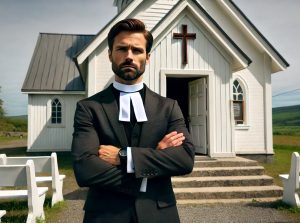The First Amendment mandates that religious organizations possess the exclusive authority to govern matters of ecclesiastical administration, faith, and doctrine, free from state intervention. Consequently, defamation claims arising in a faith-based setting are often dismissed at the outset for lack of subject-matter jurisdiction. Under the “ecclesiastical abstention” doctrine, courts are generally precluded from adjudicating disputes that involve religious law, principles, doctrines, discipline, customs, or internal administration. “[C]ivil courts are not a constitutionally permissible forum for a review of ecclesiastical disputes.” (See Cha v. Korean Presbyterian Church, 262 Va. 604, 610 (2001)). If a court determines that resolving a defamation claim will require it to “become entangled in issues regarding the church’s governance as well as matters of faith and doctrine,” the doctrine mandates that the case be dismissed for lack of jurisdiction. (See Bowie v. Murphy, 271 Va. 127, 134 (2006)). A court may only examine a defamation claim arising out of church-related issues if the court can “evaluate [the allegedly defamatory] statements for their veracity and the impact they had on [the Plaintiff]’s reputation the same as if the statements were made in any other, non-religious context.” (See Bowie, 271 Va. at 135). “The question is simply whether the court can decide the case by reference to neutral principles of law, without reference to issues of faith and doctrine.” (See Reid v. Gholson, 229 Va. 179, 188 (1985)).
The Virginia Court of Appeals published an opinion yesterday in which it examined and applied this doctrine. The Episcopal Diocese of Southern Virginia v. Marshall involved a defamation claim brought by a former Episcopal priest in Chesterfield County against the diocesan bishop who deposed him from the ministry. After overruling the defendants’ plea in bar, the trial court allowed the defendants to take an interlocutory appeal under Virginia Code § 8.01-675.5 to determine whether the claim was barred by the ecclesiastical abstention (a.k.a. the “church autonomy”) doctrine.
The background facts, according to the opinion, go something like this. Robert Marshall, then Rector at the Episcopal Church of Redeemer–Midlothian, interviewed a female prospective church employee in 2021. At the conclusion of the interview, he placed his hand on the small of her back as he led her out. He hired her, and she claims that he made her feel uncomfortable on several occasions as time went on, such as when he told her she looked “pretty” and that she would be a “great catch.” Soon after Marshall invited her to lunch on Valentine’s Day (which she felt was inappropriate), she initiated a “Title IV” complaint against him. Title IV is not a reference to a federal law but to the canons that govern ecclesiastical discipline in the Episcopal Church.
The Bishop put Marshall on administrative leave and commenced an investigation. The investigator concluded that Marshall admitted to most of the alleged interactions but denied they were sexual in nature. The Bishop proceeded to speak to the entire congregation about the situation, telling parishioners that Marshall was the subject of a complaint that “involved sexual harassment” and “boundary violations of a sexual nature.” Influenced by these statements, the vestry (a group that essentially serves as a board of directors of the church) directed the bishop to sever ties with Marshall and to bypass the remainder of the Title IV process.
The Court of Appeals held that the trial court should have sustained the plea in bar and applied the ecclesiastical abstention doctrine because the defamation claim was “inextricably intertwined” with the disciplinary proceedings that led to Marshall’s ouster. Marshall’s central complaint, according to the opinion, “is that Bishop Haynes told the congregation that Marshall engaged in ‘verbal behaviors and physical behaviors that crossed the line of what is appropriate between a priest and a parishioner or staff person.’” To determine what behavior is “appropriate,” a court would have to interpret Title IV of the canons of the Episcopal Church.
Marshall had also complained about the Bishop’s statement that the church had followed the “whole process” prescribed by Title IV when, in fact, the process was cut short. Examining the veracity of this statement would again require the court to become entangled in a religious dispute. The United States Supreme Court has held that civil courts are barred from examining whether a church has “followed its own procedures.” (See Hosanna-Tabor Evangelical Lutheran Church & Sch. v. EEOC, 565 U.S. 171, 187 (2012)).
The court also noted that “sexual misconduct” is defined by the church and the church definition prohibits far more conduct than what is prohibited in secular laws like Title VII of the Civil Rights Act of 1964. To evaluate the Bishop’s statements for truth or falsity would require the court to interpret ecclesiastical rules, which the ecclesiastical abstention doctrine prohibits.
Furthermore, the likely reason the Bishop spoke to the entire congregation about the allegations made against Marshall was that Canon 8 of Title IV calls upon the diocesan bishop to provide pastoral care for “all those who may be affected by an alleged Offence,” disclosing such information as the bishop deems “pastorally appropriate.” Thus, the court reasoned, “the trier of fact would be drawn into examining whether Bishop Haynes’s conduct was within the scope of what canon law considers ‘pastorally appropriate,’ something a secular court is forbidden from doing.”
In short, the court held that it could not resolve the defamation claim without becoming entangled in a religious dispute. It reversed the trial court’s decision to overrule the plea in bar, holding that the ecclesiastical abstention doctrine deprived the court of jurisdiction to hear the claim.













